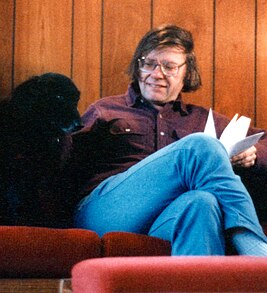Related Research Articles

Lawrence University is a private liberal arts college and conservatory of music in Appleton, Wisconsin. Founded in 1847, its first classes were held on November 12, 1849. Lawrence was the second college in the U.S. to be founded as a coeducational institution.

Walter Hamor Piston, Jr., was an American composer of classical music, music theorist, and professor of music at Harvard University.

Eduardo Mata was a Mexican conductor and composer.

Howard Harold Hanson was an American composer, conductor, educator, music theorist, and champion of American classical music. As director for 40 years of the Eastman School of Music, he built a high-quality school and provided opportunities for commissioning and performing American music. In 1944, he won a Pulitzer Prize for his Symphony No. 4, and received numerous other awards including the George Foster Peabody Award for Outstanding Entertainment in Music in 1946.

Benjamin Aaron Boretz is an American composer and music theorist.

Harold Victor Bauer was a noted pianist of Jewish heritage who began his musical career as a violinist.
Arthur Victor Berger was an American composer and music critic who has been described as a New Mannerist.
[James] Clifton Williams, Jr. was an American composer, pianist, French hornist, mellophonist, music theorist, conductor, and teacher. Williams was known by symphony patrons as a virtuoso French hornist with the symphony orchestras of Baton Rouge, New Orleans, Houston, Oklahoma City, Austin, and San Antonio. The young composer was honored with performances of Peace, A Tone Poem and A Southwestern Overture by the Houston and Oklahoma City symphony orchestras, respectively. He remains widely known as one of America's accomplished composers for the wind ensemble and band repertory.
Frederick Emil Ahlert was an American composer and songwriter.
Peter Talbot Westergaard was an American composer and music theorist. He was Professor Emeritus of music at Princeton University.
Paul William Whear was an American composer, conductor, music educator, and double-bassist.
Heinrich Gebhard was a German-American pianist, composer and piano teacher.
Harold Morris was an American pianist, composer and educator.
Peter Dickinson is an English composer, musicologist, author, and pianist, best known for his experimental musical compositions and writings on American music.
Julia Frances Smith was an American composer, pianist, and author on musicology.
John W. Downey was a contemporary classical composer, conductor, pianist and educator. His works have been performed extensively in Western and Eastern Europe, South America, Australia, Africa, the Middle East, Israel, Asia, Mexico and Canada, as well as throughout the United States.
Wayne Brewster Barlow was an American composer of classical music. He was also a professor of music, organist, and choir director.
William Franklin Lee III, aka Bill Lee was an American jazz pianist, composer, arranger, author, and music educator who was renowned for pioneering comprehensive music education, including jazz, at the collegiate level. He led the University of Miami School of Music and was the University of Miami's third music school dean from 1964 to 1982.
Edith Borroff was an American musicologist and composer. Her compositions include over 60 commissioned works, including pieces for the stage; for her primary instrument—the organ; choral, vocal, and orchestral music; and several critical editions of works by previous composers such as Jubilate by J.-J. Cassanéa de Mondonville. She also wrote at least 7 books, including the textbook Music in Europe and the United States: a History, as well as various peer-reviewed articles and publications.
Frank Bencriscutto, nicknamed "Dr. Ben," was an American conductor and composer of concert band music. Bencriscutto was Director of Bands and Professor of Music at the University of Minnesota for thirty-two years.
References
- Aryeh Oron: Baker’s Biographical Dictionary of 20th Century Classical Musicians, 1997
- Paul E. Bierley, William H. Rehrig: The heritage encyclopedia of band music : composers and their music, Westerville, Ohio: Integrity Press, 1991, ISBN 0-918048-08-7
- Obituary index : 1988 obituary index, Notes (Music Library Association), 1989, p. 723
- E. Ruth Anderson: Contemporary American composers - A biographical dictionary, Second edition, Boston: G. K. Hall, 1982, 578 p., ISBN 978-0-8161-8223-7
- Jaques Cattell Press: ASCAP biographical dictionary of composers, authors and publishers, Fourth edition, New York: R. R. Bowker, 1980, 589 p., ISBN 0-8352-1283-1
- Paul Frank, Burchard Bulling, Florian Noetzel, Helmut Rosner: Kurzgefasstes Tonkünstler Lexikon - Zweiter Teil: Ergänzungen und Erweiterungen seit 1937, 15. Aufl., Wilhelmshaven: Heinrichshofen, Band 1: A-K. 1974. ISBN 3-7959-0083-2; Band 2: L-Z. 1976. ISBN 3-7959-0087-5
- Dr. J.T.H. Mize: The international who is who in music, Fifth (Mid-Century) Edition, Chicago: Who is Who in Music, 1951, 576 p.